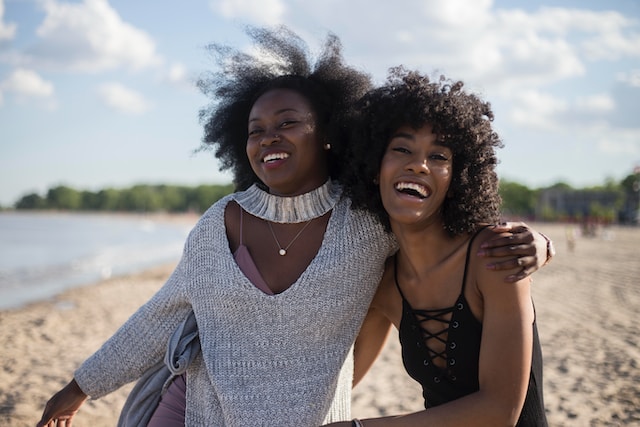For us Black folk, our hair has always been a critical component of our identity and culture. In ancient African societies, dating as far back as the 15th century, our locs were used as clear indicators of tribal affiliation, social standing, leadership roles and language, and the social consequences of hair maintenance were key aspects of communal life.
Careful grooming was the primary aesthetic standard. Coils and curls that were thick, clean, lustrous and neatly manicured were highly praised and desired.
One was considered ill if their hair wasn’t impeccably styled and in great shape.
Today, when it comes to how we think about our hair, not much has changed; our viewpoints remain mostly continual and inherent. When our hair is working in our favor, our self-confidence is next-level. But when it works against us, we sometimes want to run and hide.
Considering everything we strive for, thickness, strength, shine, making sure we are armed with the right products and safe styling methods to get there – what we put in our bodies can also have a huge impact on our hair because the secret to strong, healthy, shiny strands is actually found in the kitchen. For example, a predominantly plant-based diet can provide hair with a nourishing power that is practically endless. Not only will its nutrients protect hair fibers, but it also stimulates proteins and healthful circulation to our follicles.
Here is a roundup of some of the best foods to get your hair closer to its optimal shape, according to doctors and dieticians. Bonus: these foods help lashes and nails, too.
Omega-3 Fatty Acids
Omega-3 fatty acids are miracle workers for your hair. They contain anti-inflammatory properties that open hair follicles, encourage hair growth and make it more shiny. Great sources of this healthy fat are fatty fish such as tuna and salmon. If you’re pescatarian or vegan, opt for Brussels sprouts, walnuts and flaxseeds.
Calcium
As we know, calcium is good for building strong bones and teeth, but did you know it’s also extremely important for your hair? The calcium that is located in the cells of hair follicles stimulates communication between them, aiding in a hormone enzyme secretion that encourages new hair growth. Foods like cheese, yogurt, cabbage, chard, kale and bok choy are fantastic go-to calcium sources.
Vitamin C
Vitamin C creates collagen, a fiber that helps our hair follicles remain healthy. It also helps to prevent split ends. Bell peppers, oranges and tomatoes are rich sources.
Vitamin A
Vitamin A promotes cell growth which leads to hair growth. It also helps the body to produce sebum, a natural oil produced by glands on your scalp that nourishes the hair. Carrots, spinach, kale and sweet potatoes are all high in beta-carotene, a type of antioxidant that gets converted into Vitamin A.
Sea Buckthorn
A shrub native to China, sea buckthorn has been used for its high nutritional qualities for hundreds of years. It’s loaded with omega-7’s, beta-carotene and vitamin C, all great for promoting strong, lustrous hair.
Biotin
When we eat a well-balanced diet that includes biotin-rich foods such as avocados, almonds and eggs, our bodies will automatically make adequate amounts of it, so it’s not too important to take supplements unless you know for sure you’re deficient. Only a small percentage of people actually lack sufficient quantities.
Folate and Iron
Folate and iron promote hair growth because they help to create red blood cells that carry oxygen to your scalp and follicles. Spinach is a high source, so add it to your smoothies, wilt it on a stovetop or toss it into your salads.
Zinc
By improving overall immunity in the body, Zinc helps to promote and restore the growth of hair tissues. Oysters, clams, crab and other shellfish are rich sources of this trace mineral (meaning your body can thrive on small amounts), but if you’re vegan, beans, chickpeas, lentils, tofu, walnuts, cashew nuts, chia seeds, pumpkin seeds and quinoa are all high in Zinc as well.
Protein
Hair is made up of structures of proteins called keratin. It is essential for cell growth, especially that of your hair, but a protein vitamin deficiency tends to decelerate hair growth and weaken hair strands. Common protein-rich foods are lean beef, chicken and pork. If you’re a vegetarian or vegan, lentils, tofu and soybeans are loaded with protein, too.
Broccoli
If you’re dealing with breakage, then broccoli is your friend. It is high in folate, a natural B vitamin, that amps up the body’s cell production processes and boosts the strength of your strands. Weak, brittle or thinning hair could be a sign of low folate levels, but it is important to first consult with a doctor to know for sure.








